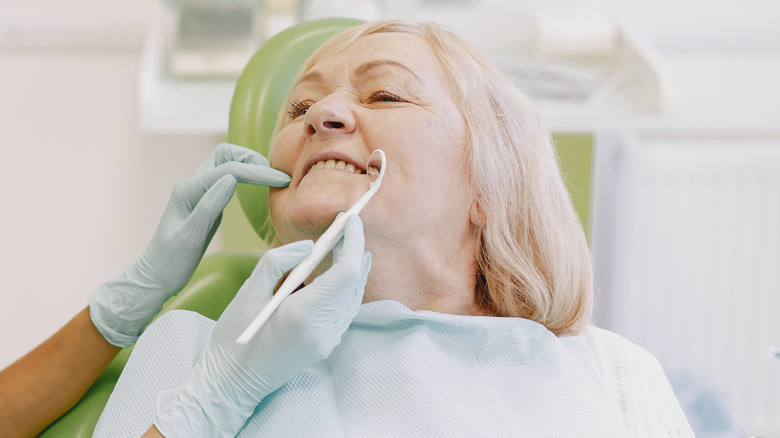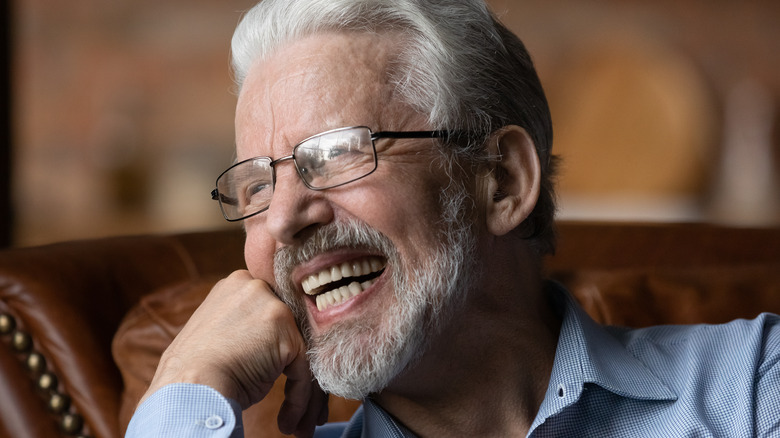Is It Normal For Your Bite To Change As You Get Older?
When referencing your "bite," experts are essentially referring to the alignment of your teeth. Healthline explains that a healthy bite is one in which the top teeth minimally protrude over your bottom teeth. In addition, the points and grooves of each of your upper and lower molars fit into one another much like a puzzle piece. While dental devices, such as braces and retainers, can help us achieve this look, you may have noticed as the years go by that your once previously-aligned smile may be taking on a different shape. Why does this happen and is it considered normal?
The experts at Innovative Orthodontic Centers explain that it is normal for your bite to shift as you grow older. Although some changes may be due in part to natural structural changes, other changes may be due to age-related circumstances. For example, those who take certain medications, particularly those that come with dry mouth as a side effect, may be more prone to smile changes as they get older. However, changes we experience in our bite as we grow older are sometimes entirely out of our control. The reason being, Ladera Orthodontics explains that our teeth naturally move forward and lean inwards over time, often caused by natural changes to the jawbone, notes Innovative Orthodontic Centers. These changes can be especially apparent to those who may have previously worn braces, Invisalign trays, or retainers.
How to help preserve your bite as you age
Additionally, our teeth take the brunt of everyday use, such as chewing, grinding, clenching, and more. Over the years, these actions can break down the protective enamel on our teeth, which is why our teeth may eventually appear shorter than they once were (per Innovative Orthodontic Centers). Alternatively, some people may notice the development of a gap between their two front teeth as they get older. This can occur due to the progression of gum disease or repeatedly pressing one's tongue against the back of their front teeth over time. Similarly, those who have experienced ongoing orthodontic issues, such as overcrowding, teeth misalignment, TMJ disorder, and more, are more likely to experience changes to their bite as they grow older.
To help preserve your smile, Innovative Orthodontic Centers encourage brushing one's teeth twice daily, flossing once a day, regularly wearing a retainer, and keeping up with routine dental exams twice a year to promptly treat any signs of tooth decay or gum disease. Additionally, experts at New LifeStyles suggest minimizing soda and alcohol consumption, using an antibacterial fluoride-based mouthwash to keep up with oral hygiene while on the road, and practicing stress management techniques to help limit teeth-grinding and jaw-clenching habits. Although some changes to our bite may be inevitable as we age, we can take steps to minimize the shifting of our teeth by keeping our pearly whites clean and healthy.


